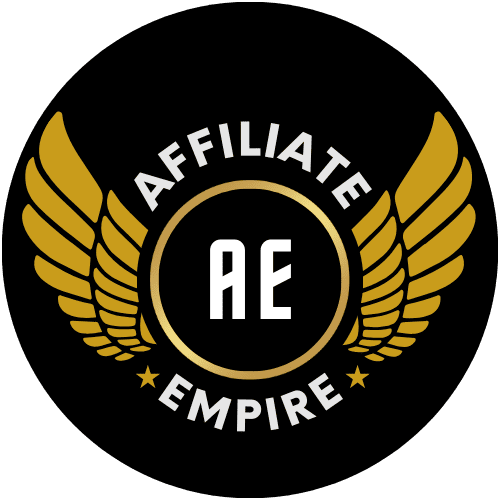
In the dynamic world of digital marketing, affiliate marketing stands out as a reliable avenue for income. Every day, brands and businesses actively seek partners to promote their products, paying generous commissions for each sale or referral made. But with great opportunity comes great competition. How do you, as an affiliate marketer, stay ahead and maximize your earnings? By equipping yourself with the right tools. In this article, we will explore ten essential tools every affiliate marketer should have in their arsenal. These tools not only streamline your efforts but also ensure you’re getting the most out of your affiliate partnerships.
1. Tracking and Analytics Software
Understanding your audience’s behavior is crucial. Without the right insights, you might as well be throwing darts in the dark. Tracking and analytics software, like Google Analytics or ClickMeter, provides detailed insights into your audience’s behavior, helping you understand which campaigns are effective and which are not. This way, you can fine-tune your strategies for maximum returns.
Key Features to Look For:
- Real-time data tracking
- User behavior analysis
- Conversion rate metrics
- Traffic source breakdown
2. Affiliate Link Management Tools
Managing multiple affiliate links can become chaotic without the right tool. An affiliate link management tool, such as ThirstyAffiliates or Pretty Links, allows you to cloak, organize, and track your affiliate links efficiently. Besides keeping things tidy, these tools can also increase the click-through rate by making the links more appealing.
Key Features to Look For:
- Link cloaking and redirection
- Click tracking
- Automated link insertion
- Backup and export functionalities
3. SEO Tools
Ranking high on search engines means more visibility and more potential customers. SEO tools, like SEMrush or Ahrefs, provide insights into keywords, backlinks, and competitor analysis, ensuring your content is optimized for the best possible search engine rankings.
Key Features to Look For:
- Keyword research and tracking
- Backlink analysis
- On-page SEO audits
- Competitor benchmarking

4. Email Marketing Platforms
Engaging with your audience regularly keeps them informed and ensures they don’t forget about your offerings. Email marketing platforms, such as Mailchimp or ConvertKit, allow you to automate campaigns, segment your audience, and track the performance of your emails.
Key Features to Look For:
- Easy-to-use email template builders
- Audience segmentation
- A/B testing
- Analytics and reporting
5. Landing Page Builders
A compelling landing page can be the difference between a visitor and a customer. Landing page builders, like Leadpages or ClickFunnels, provide drag-and-drop functionalities to create high-converting landing pages without the need for any coding knowledge.
Key Features to Look For:
- Drag-and-drop editor
- Mobile responsiveness
- Integration with other marketing tools
- A/B testing capabilities
6. Social Media Management Tools
In today’s digital age, maintaining a strong presence on social platforms is non-negotiable. Tools such as Hootsuite or Buffer allow affiliate marketers to schedule posts, track social media interactions, and measure campaign performance across different platforms in one centralized dashboard.
Key Features to Look For:
- Multi-platform scheduling
- Engagement analytics
- Content curation features
- Collaboration capabilities
7. Graphic Design Software
Visuals play an essential role in capturing audience attention. Tools like Canva or Adobe Spark make graphic design accessible even for those without formal design training. They provide templates, design elements, and easy-to-use interfaces to craft eye-catching visuals for your affiliate marketing campaigns.
Key Features to Look For:
- Variety of design templates
- Custom branding options
- Drag-and-drop functionalities
- Stock image integrations

8. CRM Platforms
Building and nurturing relationships are at the heart of affiliate marketing. Customer Relationship Management (CRM) tools like HubSpot or Salesforce assist marketers in managing interactions with potential and existing customers. These tools allow for better segmentation, lead tracking, and tailored communication strategies.
Key Features to Look For:
- Contact management
- Email integration and tracking
- Lead scoring capabilities
- Customizable dashboards
9. Content Management Systems (CMS)
For affiliate marketers running blogs or websites, a robust CMS is paramount. Platforms like WordPress or Wix enable marketers to create, manage, and optimize content without the need for extensive coding skills.
Key Features to Look For:
- SEO optimization features
- Customizable themes and templates
- Plugin and app integrations
- User-friendly editor
10. Webinar and Video Hosting Platforms
Video content is gaining traction, and many affiliate marketers leverage webinars and video tutorials to engage with their audience. Tools like Zoom or Vimeo provide hosting solutions with features tailored for marketing needs.
Key Features to Look For:
- Live broadcasting capabilities
- Interactive features (polls, Q&A)
- Analytics and reporting
- Integration with other marketing tools
Conclusion
Affiliate marketing may seem straightforward, but achieving consistent and substantial earnings requires strategic planning and the right tools. By integrating these ten essential tools into your marketing toolkit, you’re setting yourself up for success. Remember, it’s not about working harder; it’s about working smarter. With these tools at your disposal, you’ll be well on your way to maximizing your affiliate marketing earnings, ensuring you stay ahead in the competitive digital landscape.





